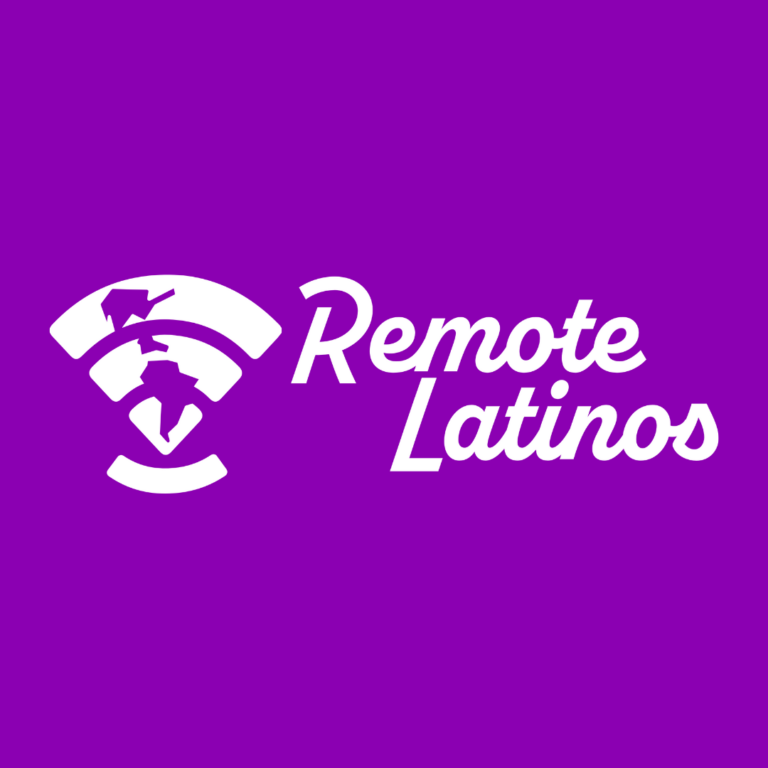The secret to scaling businesses: Remote Latino talent

This article is a submission by Remote Latinos. Remote Latinos connects businesses with top talent from Latin America. Their platform facilitates the hiring of professionals from over 40 countries in Latin America.
Scaling a business is one of the toughest challenges entrepreneurs face. Growth requires more than a strong product or service, it demands a reliable team that can support expansion without inflating costs or creating operational bottlenecks.
In today’s globalized market, remote talent has become a critical lever for growth. And increasingly, businesses are realizing that one of the most overlooked yet powerful sources of talent lies in Latin America.
Remote Latino professionals are not just filling roles, they are fueling innovation, driving revenue, and helping businesses scale sustainably.
Why Latin America is becoming a global talent hub
Latin America has quickly emerged as a preferred region for building remote teams, and for good reason. One of its biggest advantages is time zone alignment with the United States.
Unlike traditional outsourcing hubs in Asia, where communication often happens overnight, professionals in Mexico, Colombia, Brazil, and Argentina can collaborate in real time with U.S. teams.
This makes projects more agile, meetings more effective, and customer support more responsive. Beyond logistics, cultural alignment plays a huge role.

Latin American professionals understand Western business practices, customer expectations, and communication styles, making them a natural fit for U.S.-based companies.
They not only speak English fluently but often bring bilingual skills in Spanish and Portuguese, which is an immediate advantage for businesses looking to expand into diverse markets.
The region’s growing population of young, educated, and tech-savvy professionals means companies are accessing a workforce that is not only available but also eager to contribute to global business.
Let’s explore these advantages:
1. The cost advantage without cutting corners
Cost efficiency is one of the strongest motivators for businesses to look at remote talent, but hiring from Latin America offers more than just lower payroll expenses.
For example, while hiring a virtual assistant in the U.S. may cost around $10 to $15 an hour, highly skilled professionals in Latin America can be engaged for $3 to $6 an hour.
This substantial difference frees up capital that can be reinvested in marketing, technology, or expanding teams more quickly. Importantly, these savings do not come at the expense of quality.
The professionals emerging from the region often hold degrees in business, design, engineering, or communications, and many have previous experience working for multinational corporations or startups.
By tapping into this talent pool, businesses are essentially paying global-level professionals at a fraction of the cost.
Companies that succeed in scaling understand that reducing costs is only valuable if it enhances competitiveness. Latin America offers both: lower operational costs and high-caliber talent ready to perform at international standards.
2. A skilled and versatile workforce
The workforce in Latin America is versatile, covering a wide range of industries and specialties. Virtual assistants from the region are not limited to administrative work.
Many have backgrounds as client success managers, graphic designers, video editors, marketing specialists, project coordinators, or even acquisition managers.
This breadth of skills means a single business can fill multiple needs without juggling several vendors or platforms.
Remote Latino professionals are also quick to adapt. They are comfortable with tools like Slack, HubSpot, Asana, ClickUp, and Zoom, and they often bring their own insights into optimizing workflows.
For startups and small businesses that need employees who can wear multiple hats, this adaptability is a major asset. For larger corporations, it means being able to scale specialized teams rapidly without the delays and costs of local hiring.
The versatility of Latin American professionals allows businesses to grow efficiently while maintaining flexibility.
3. Cultural and language alignment
Language and culture can make or break remote work success. Latin American professionals not only bring fluency in English but also a cultural closeness that creates smoother collaboration with U.S. teams.
Shared values around relationship-building, respect, and direct communication reduce friction in day-to-day operations. For companies expanding into Spanish-speaking markets, the advantages multiply.
Having team members who are not just bilingual but bicultural provides a deeper understanding of customer behavior, allowing businesses to tailor marketing, sales, and support strategies with authenticity.
This is more than a communication advantage; it’s a competitive differentiator. When businesses connect with customers in their language and cultural context, trust grows, and so does market share.
Latin American professionals bridge this gap naturally, turning potential barriers into opportunities for growth.
Latin America vs. the Philippines: Not either/or
For decades, the Philippines has been the go-to hub for outsourcing, particularly in customer service roles. Filipino professionals are known for their excellent English proficiency, loyalty, and meticulous execution.
However, Latin America offers a compelling alternative for companies seeking growth beyond cost savings.
Where Filipino professionals excel in service delivery and long-term support, Latin American professionals often shine in roles requiring salesmanship, negotiation, and fast-paced collaboration with U.S. markets.
Their cultural closeness means they can anticipate client needs, build rapport, and contribute strategically in ways that go beyond task execution. Businesses do not necessarily need to choose between the two regions.
Many successful companies are building hybrid teams, leveraging the strengths of each. However, for businesses looking to expand sales, leadership pipelines, and market expansion, Latin America has a unique edge.
From assistants to growth partners
One of the biggest shifts in recent years has been the changing perception of virtual assistants. No longer seen as mere task-doers, professionals from Latin America are increasingly stepping into leadership and revenue-driving roles.
Many begin as support staff but quickly advance into positions such as lead managers, project coordinators, and acquisition managers. Some even take responsibility for closing deals and overseeing teams. This upward mobility benefits both the professionals and the businesses employing them.
Companies gain team members who are invested in growth, while professionals see long-term career paths that motivate loyalty and performance.
Instead of viewing remote hires as temporary helpers, businesses are redefining them as core contributors to strategy, innovation, and customer success.

Real-world impact: A case study
Consider a U.S.-based e-commerce company that scaled rapidly by hiring remote Latino professionals. Starting with just three team members, the company expanded to twelve in less than 90 days by building a team in Colombia and Mexico.
The results were striking: payroll costs were reduced by 60 percent, customer response times improved by 40 percent, and the company gained a new revenue stream by entering Spanish-speaking markets. This case is not unique.
Across industries, from real estate to SaaS to marketing agencies, companies are leveraging Latin American talent not just to save money but to accelerate growth.
What sets these companies apart is their recognition that remote Latino professionals are not a stopgap measure but a strategic advantage.
Keys to success with Remote Latino talent
Hiring the right people is only the first step. Businesses that scale successfully with remote teams focus on three critical areas: onboarding, retention, and culture.
A structured onboarding process sets expectations, provides training, and integrates new hires into the team’s mission from day one. Retention requires daily engagement, treating employees as valuable partners whose growth matters as much as performance.
Finally, building culture remotely means creating rhythms, rituals, and clear communication channels. Regular check-ins, shared celebrations, and transparent goals help remote teams feel connected and motivated.
Companies that treat their Latin American professionals as integral parts of the organization, rather than as outsourced labor, reap the benefits of higher productivity, stronger loyalty, and better outcomes.
The growth multiplier you’re overlooking
Scaling in today’s business landscape is about more than cutting costs, it’s about unlocking hidden multipliers of growth.
Remote Latino talent offers exactly that: cost efficiency that frees capital for reinvestment, cultural and time zone alignment that makes collaboration seamless, and diverse skill sets that move far beyond administrative tasks.
Businesses that embrace this resource don’t just grow, they gain a competitive advantage that sets them apart in crowded markets. The future belongs to companies that see remote professionals not as expenses but as partners in innovation.
Remote Latino talent is not just a way to keep operations lean; it is the secret weapon for scaling smarter, faster, and more sustainably.







 Independent
Independent




